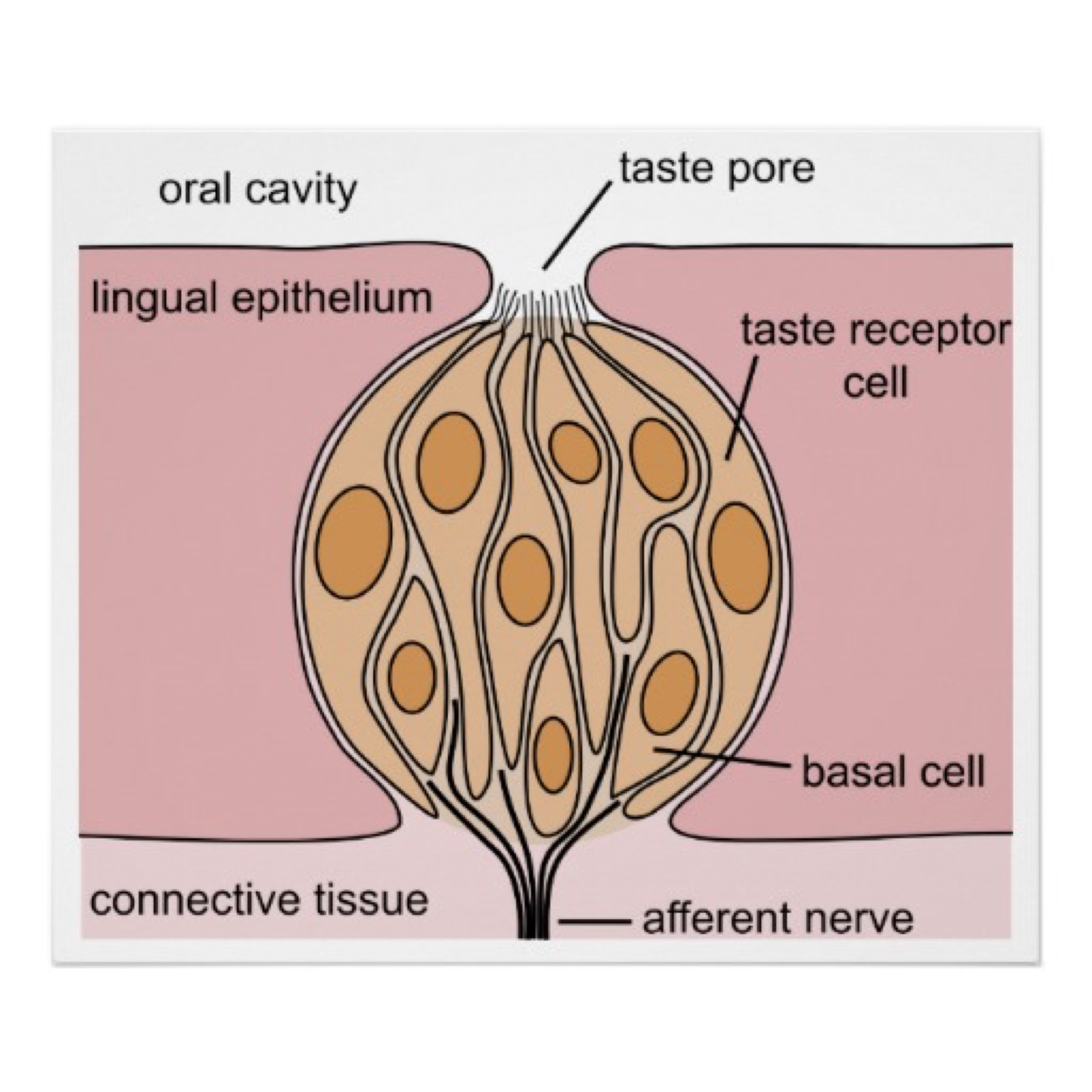10 Tips To Get Those Taste Buds Working As They Should
Taste buds are sensory organs in the form of little bumps on your tongue that allow you to experience all the different tastes whether they are sweet, salty, sour or bitter by sending messages to the brain.
The average person has up to 10,000 taste buds and they are replaced every 2 weeks or so. But as a person ages, some of those taste cells don't get replaced.
An older person may only have 5,000 working taste buds and, of course, smoking can further reduce the number.
But taste buds don't work alone
Olfactory receptors inside the upper part of the nose contain special cells that help you smell and that also send messages to the brain. As you enjoy your food, it releases chemicals that travel straight up to your nose. These work together with the taste buds to create the true flavor of whatever it is you are eating. This why any head cold or allergy that stuffs up your nose can make the food you are eating seem less flavorsome. Those chemicals are just not able to reach the olfactory receptors.
There are other reasons why your taste buds don't work to their full potential
1. If you are not paying attention to your meal as you eat it because you are distracted by watching TV or working at your desk. At such times, your digestive processes can become 30 to 40% less effective in breaking down your food, leading to less flavor and increasing the possibility of bloating, gas and constipation.
2. If you eat too quickly, you miss out on inhaling deeply so that less chemicals are sent to those olfactory receptors in the nose. Slow down the eating and you are more likely to stop when you feel full, avoiding weight gain.
3. Too many complicated tastes. Simplify your meals by breaking them down to the basic whole foods. If you eat just one type of fruit or vegetable at a time - completely on its own - you will help to re-set the taste buds. Keep up this way of eating for at least once a day when you can enjoy the unique flavor and texture of a fruit or vegetable without any accompanying sauces. You will learn to notice that celery is slightly salty while some apples are tart and others sweeter.
4. A common side effect of taking medications is that they can affect your taste buds and alter your taste sensation. Over 250 prescription drugs have this effect while chemotherapy and radiation actually kill off receptor cells.
5. Learn to cleanse your palate between courses so that it is neutral for the next taste. By re-setting your taste buds, you will enjoy your meal so much more. You can do this by sucking on a lemon wedge or orange segment or snack on a soda cracker or a bread stick. Even sipping lukewarm water will work. Another tip is to eat a small piece of fresh or pickled ginger between meals to neutralize both the flavor of the food and help with digestion.
You could also make your own sorbet, which has traditionally been served between courses to cleanse the palate. You will need: 4 cups frozen cubed mango, ½ cup freshly squeezed orange juice, 3 tablespoons raw honey, a dash of stevia (optional), plus a pinch of natural sea salt and 1 cup of ice cubes. Gradually blend together until the ice is smooth (for about 60 seconds) and then pop in the freezer until needed.
6. Always eating the same things and never trying something new and different can be another reason why your taste buds are letting you down – boredom! A good way to change this is to add one new ingredient to your recipes or meals every few days in order to re-educate your tongue and expand your gastronomic horizons. Try to avoid always eating the same things in a monotonous manner. New flavors and smells help you to pay attention once more to what you are eating.
7. In the same way, it can be a giant step for you to step out of your comfort zone when it comes to tastes and to meals. Start trying those foods that are enjoyed by people of different cultures to that of your own.
8. Forget about processed salt. Most people eat much more of this processed salt than they should and of course it is used in just about every type of processed food as well, so no wonder your taste buds are affected. We all need some salt but it must be natural salt.
9. Too much sugar is another problem affecting our taste buds and, of course, every other aspect of our health. Once again, processed food is often the culprit being full of sugar and, even worse, high fructose corn syrup. Remember that your taste buds are constantly replaced so that if you can restrict your intake of sugar for a couple of weeks, you will then notice how sweet foods taste naturally without any additional sugar. Once you are no longer overloading your taste buds and olfactory cells with sugary foods, you'll start to notice other more subtle but equally rich tastes.
10. Smoking has already been mentioned but nicotine suppresses the nerve activity in the areas of the brain associated with taste. Those dangerous and toxic chemical compounds in cigarettes interfere with both the sense of taste and smell by dulling the ability of the taste buds and olfactory cells to send those sensory messages to the brain. In addition, the bitter taste of the nicotine can also overwhelm the senses so that you are less likely to taste and smell other flavors. Anyone giving up smoking will start to notice an improved sense of taste and smell in a matter of just days because the taste buds and olfactory cells are constantly regenerating.
It could be just the right time for you to develop more sensitivity and interest in your taste for food.

Sources
Bromley SM. (2000). Smell and taste disorders: A primary care approach.
aafp.org/afp/2000/0115/p427.html. (Accessed, 5 October 2021).
Cheruel F, et al. (2017). Effect of cigarette smoke on gustatory sensitivity, evaluation of the deficit and of the recovery time-course after smoking cessation.
DOI: 10.1186/s12971-017-0120-4.
Dasaraju PV, et al. (n.d.). Chapter 93: Infections of the respiratory system.
ncbi.nlm.nih.gov/books/NBK8142/. (Accessed, 5 October 2021).
Douglass R, et al. (2010). Drug-related taste disturbance.
ncbi.nlm.nih.gov/pmc/articles/PMC2980431/. (Accessed, 5 October 2021).
Hamamichi R, et al. (2006). Taste bud contains both short-lived and long-lived cell populations.
DOI: 10.1016/j.neuroscience.2006.05.061.
Horan M. (2017). Do your taste buds change as you get older?
health.clevelandclinic.org/taste-buds-change-get-older/. (Accessed, 5 October 2021).




